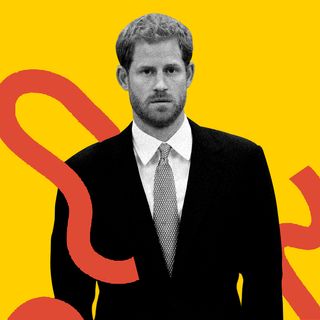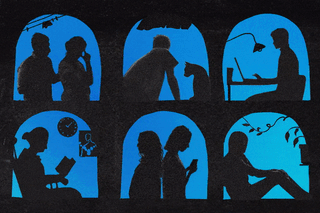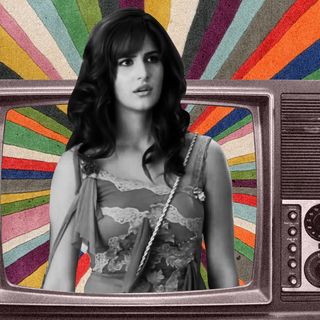
As the Shadow of the Pandemic Looms Over Cities, Urban Loneliness Is Rising
Although people are attempting to restart their old lives, many are finding that the pre-2020 versions of their lives no longer exist.

Even before the pandemic struck, a chronic loneliness epidemic had gripped millennials and Gen Z-ers alike, with research deeming them the loneliest ever in the history of humankind. Now, the post-pandemic world may be aggravating this predicament, even as people are trickling back into cities after months of working from home in isolation. Posts about loneliness have lately become commonplace on subreddits from metropolitan cities like Mumbai, Bengaluru, and Delhi. It’s ironic that despite the lack of personal space in urban areas, desolation is peculiarly pervasive, resulting in a paradox of sorts: millions of people feeling lonely, collectively.
Describing what chronic loneliness feels like, Rajvi Desai had written in The Swaddle: “[It] is a long-term, continuous feeling of unwelcome isolation and feeling lonely, regardless of whether the person is physically alone or not. It’s the feeling of perceiving oneself as separate from others, unable to connect with people and surroundings on an emotional level, and feeling constantly alienated and deprived of human connection.” According to experts, at the very root of chronic loneliness lies dissatisfaction.
To a large extent, post-pandemic loneliness is a consequence of this feeling of disconnect from reality — or, at least, the reality that everyone around seems to be living. Even as the corporate machinery churns at its pre-pandemic pace, many of its cogs aren’t. Living through the pandemic has left people fatigued, anxious, and traumatized — be it due to long Covid, survivors’ guilt, or the natural consequence of living through a period that many described as an “apocalypse.” Seeing everyone else seamlessly switch back to the pre-pandemic “normal,” then, can seem disconcerting and isolating.
For Namrata, 29, “[P]ost-pandemic has possibly been the loneliest phase of my life. I do enjoy my solitude and am aggressively protective of the same, but one can never tell when the boundaries between solitude and loneliness blur and suddenly one’s own company, and a silent phone just does not suffice.”
Related on The Swaddle:
Why Some People Feel More Lonely Than Others
Randi Gunther, a clinical psychologist, calls this a “new kind of loneliness.” According to Gunther, “The sense of feeling alienated and isolated is incredibly common now, as is disappointment or boredom with [people] you might once have been eager to meet… You have become rusty in being able to banter or play, worrying too much about how others may judge you.” This is largely a consequence of months of de-socialization having made people socially awkward. Reports suggest that ever since things began going back to the pre-pandemic version of “normal,” more and more adults are experiencing stress around social interactions and even running out of things to talk about. It’s as though the pandemic has created an army of lonely wallflowers.
To add to that, given that the pandemic isn’t truly over, there’s also an overwhelming sense of alertness, coupled with a suspicion of people who may appear contagious.
Apart from the physical and economic fallouts, surviving through the pandemic has also impacted our psyche, leaving behind an almost indelible mark on our perceptions of people in our social circles. “Limited connection with others over a long period of time also creates more of a ‘them’ and ‘us’ mentality, causing less trust and openness to new experiences with outsiders. So many people now are hyper-vigilant and cautious, not having had access to the changes that have happened to others during the same time,” explains Gunther.
Besides, independence can also exacerbate feelings of loneliness, especially for those who migrated to bigger cities, away from their families, to pursue employment opportunities. While cities do offer one the freedom to carve their identity far from the influence of their families, they also strip people of their primary support systems. The pandemic also led to many getting used to living with their families. Now, with people moving back to cities for work, many are feeling a loss of support systems, alongside the pressure to be independent – all of which can exacerbate isolation. “Living alone has always been sold as fun, but it has been quite the opposite for me… Post-pandemic, when life went back to normal, and I had to pack my bags and leave my hometown to come to the city where it’s just work-work-work, and coming back to an empty house, it triggered my loneliness,” says Vinshika, 23.
Related on The Swaddle:
Why People Might Feel Lonelier as They Age
Although people are attempting to restart their old lives, many are finding that the pre-2020 versions of their lives no longer exist. With people losing their jobs, continuing to work from home, or resigning in line with the realignment of their priorities during the pandemic, their friends and colleagues are now confronted with changes in the composition of their social circles. They are suddenly tasked with building their circles from scratch again, while maintaining long-distance friendships with people who aren’t in close proximity to them anymore.
This rejigging of priorities also means that one may have to come to terms with their friends’ modified routines and pursuits – a change that can feel overwhelming, and induce a sense of longing and loneliness. The experiences of Kabeer*, 31, echo this: “Sometimes [I feel lonely] despite having friends because it feels like they’re all partnered-up, or have their first priority circles that I’m not a part of… It’s followed by this nagging knowledge that they aren’t as invested in the friendship as I am.”
Like Kabeer, one of the biggest struggles for Namrata has been to process that, in the society we live in, friendships tend to take a backseat and romantic intimacies take precedence. Especially so, with the pandemic having paved the path for the “great wedding boom,” as The New York Times called it. Ironically, it is likely that loneliness itself was a driving factor there, too, inducing many to fast-track their romantic relationships by moving in together or tying the knot so they’d not have to go through social isolation alone, again. Moreover, with reports about the lockdown having boosted the bond between numerous couples, the “us vs. them” dynamic that Gunther refers to, has probably become stronger, leading people like Kabeer and Namrata to feel even more isolated.
Acknowledging this debilitating sense of loneliness creeping into their lives, some people have begun exploring various coping mechanisms. People who can afford to do so are going home more often, many are journaling or attempting to reignite the passion they felt towards their hobbies, while others, like Aaliya*, are connecting with strangers both online and offline to find “love and support through community healing.” Through her interactions with strangers, the 36-year-old has learnt, “I’m never going to not feel lonely, but I try my best to feel less lonely today than I was yesterday.”
As she continues looking for ways to “convert her loneliness into desired solitude,” she adds, “It’s ironic: we are alone, together.”
*Name concealed to protect identity.
Devrupa Rakshit is an Associate Editor at The Swaddle. She is a lawyer by education, a poet by accident, a painter by shaukh, and autistic by birth. You can find her on Instagram @devruparakshit.
Related


Woe Is Me! “How Do I Navigate a Relationship With an Introvert?”
